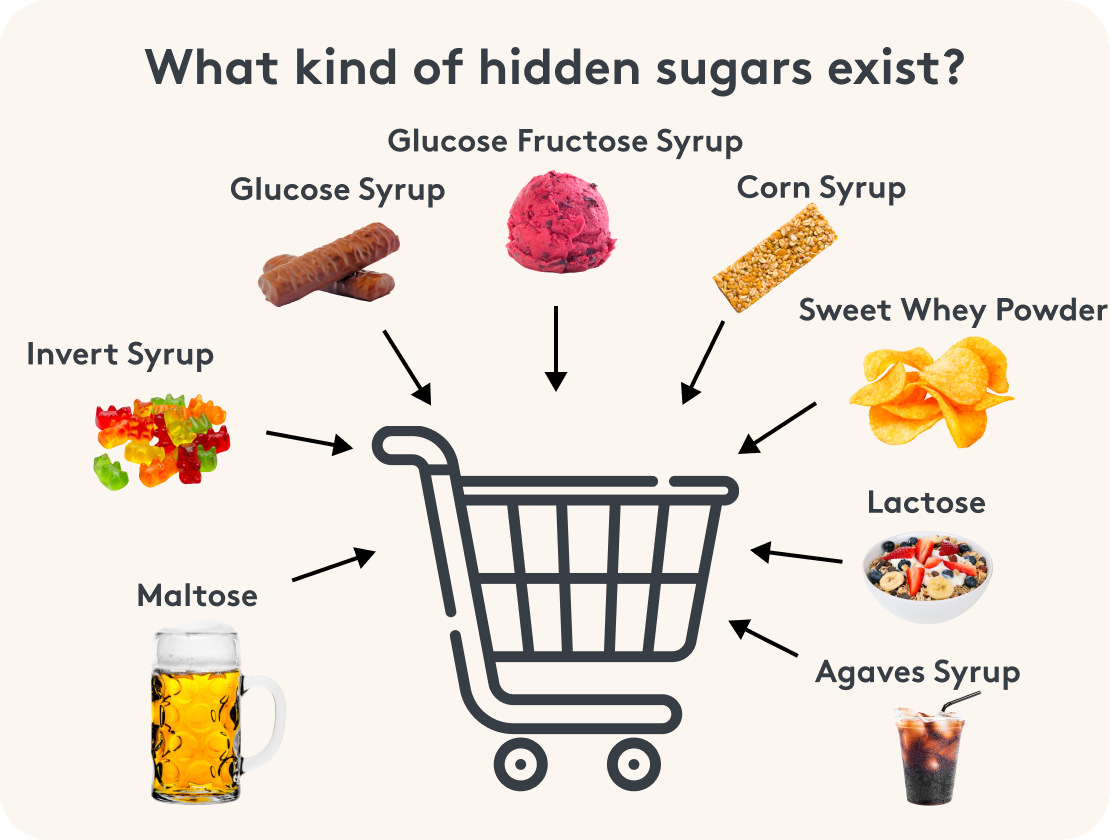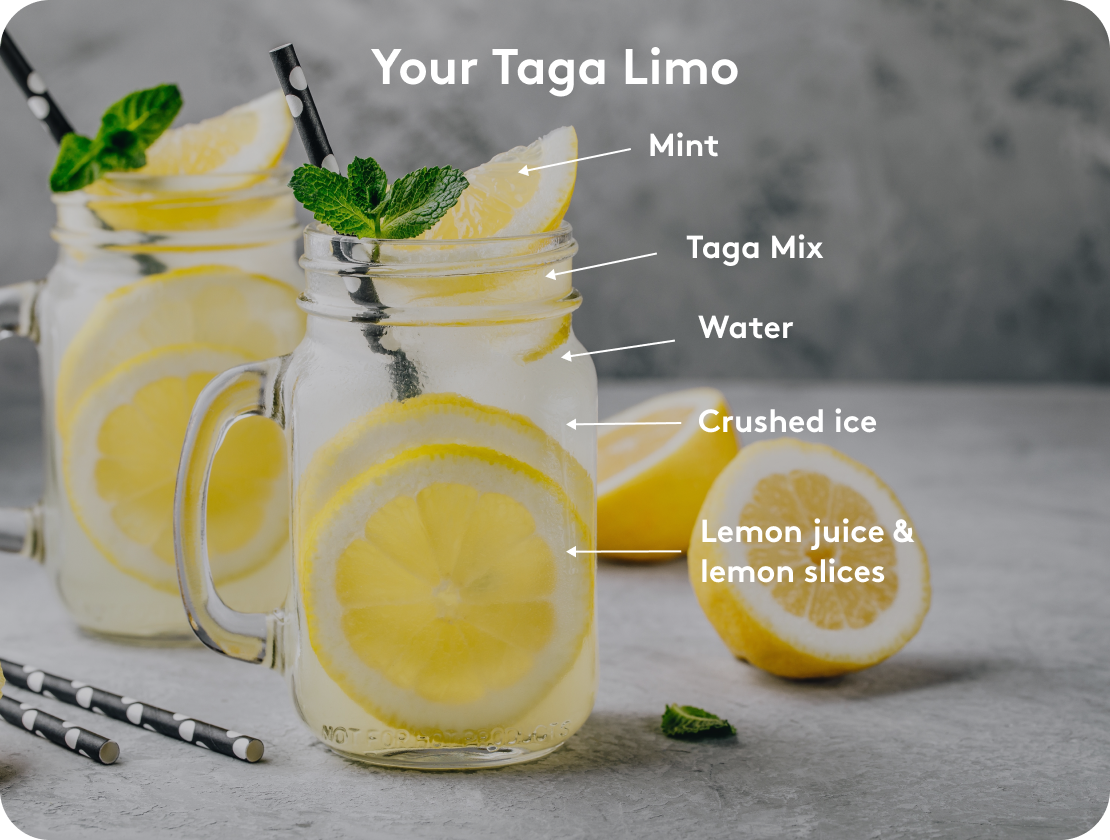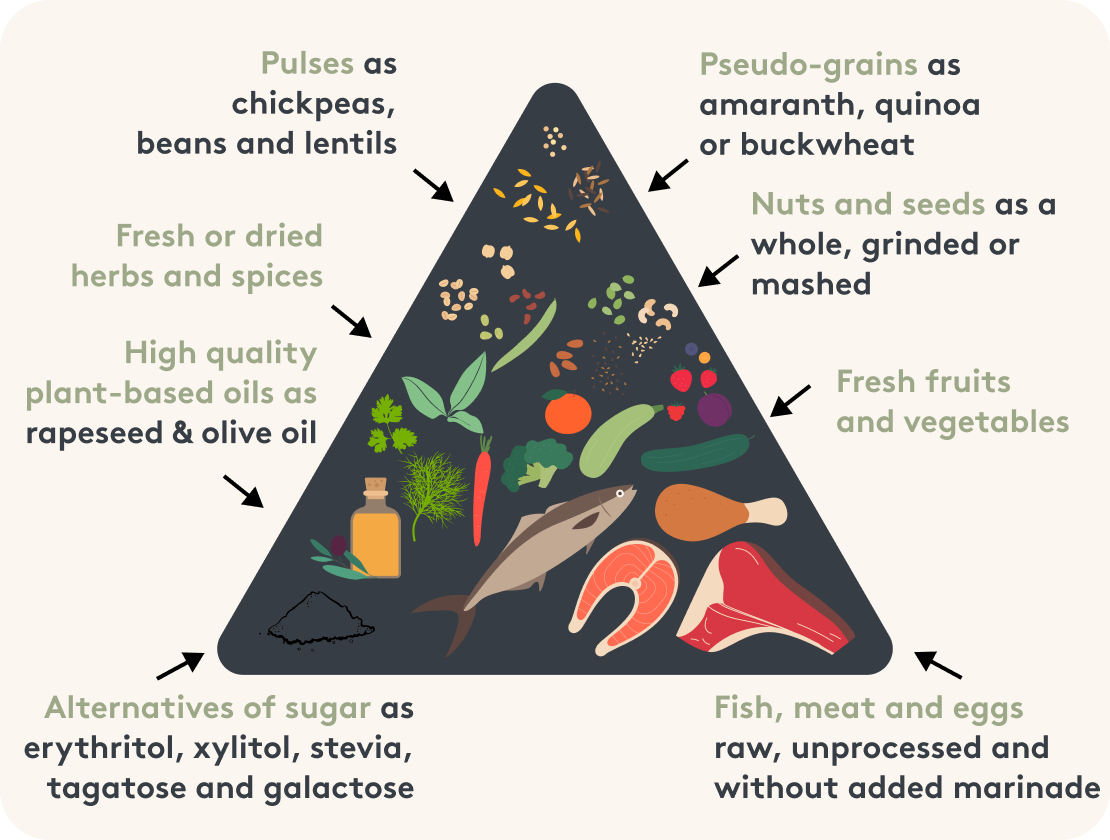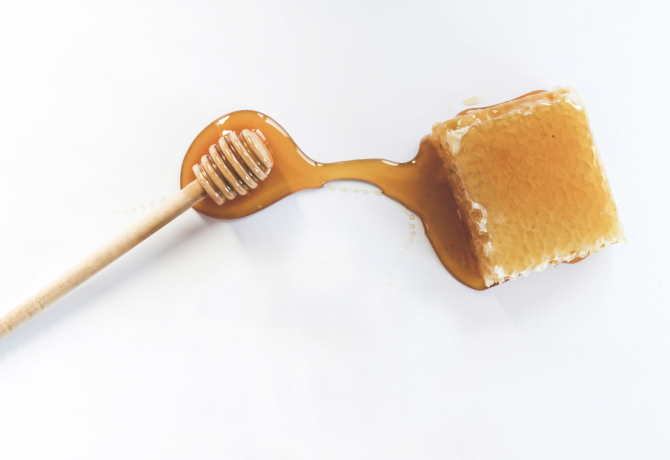Themen dieses Blogartikels:
Knowledge for your ears!
Knowledge for your ears!
The most important facts about your sugar consumption
What you should know:
Pure sugar contains no vitamins or minerals, can make you sick and even addicted. Yes, it tastes good and provides quick energy, but does this alone outweigh the disadvantages? We dare to doubt it. The WHO advises eating no more than 6 teaspoons of sugar per day[1]. On average, however, every German consumes almost 22 teaspoons of sugar.
People often underestimate their own sugar consumption, as sugar is found in more foods than initially suspected. So it is not surprising that the decision to live sugar-free can easily lead to frustration at the beginning.
Consider this figure: Every German eats an average of 89 g of sugar per day[2], which is almost 2.7 kg in 30 days!
In addition, a sugar-free diet also brings some negative side effects at the beginning, as the body reacts to sugar withdrawal with headaches, dizziness or skin blemishes, for example. If you resist these withdrawal symptoms, you will be rewarded. The general well-being improves, one feels fitter and more energetic, even the sense of taste can improve. Sugar also causes blood sugar levels to rise, which means you are very awake during the day and can't fall asleep at night. Excessive sugar consumption can make you sluggish and listless. A sugar-free diet makes you fitter and more alert throughout the day and helps you fall asleep and stay asleep.
9 tips to make it easier to reduce sugar in everyday life
#1 Prepare yourself well
What foods do you buy regularly? Check the packaging at home to see how many contain added sugar - replace them with sugar-free foods on your next shopping trip.
When you're shopping, make it a habit to check the ingredients before anything ends up in your shopping cart. The ingredient listed first is the one that's most abundant. You'll be surprised how often sugar is listed first.
It is also important to know that sugar has many names. The suffix "-ose" usually reveals it. For example, lactose (milk sugar), sucrose (table sugar and beet sugar), maltose (malt sugar), glucose and dextrose (grape sugar), or fructose (fruit sugar).
Other hidden sugar traps include:
• Ingredients ending in "-dextrin", such as maltodextrin or wheat dextrin
• Malts or malt extracts such as barley malt or barley malt extract
• Concentrated milk products such as skimmed milk powder or sweet whey powder
• Fruit sweeteners, juices, fruit concentrates and nectars
• Ready-made sauces and dressings and tomato ketchup
• Dairy products such as fruit yogurts or cocoa drinks


#2 Make a plan
Make a plan of what you want to eat and when. This way you avoid buying a small snack at the supermarket or bakery or ordering something in the evening instead of cooking fresh.
#3 Drink unsweetened beverages
Try to drink your tea or coffee without sugar. If you find this difficult at the beginning, try it slowly and halve the amount of sugar. You'll see that in time you'll be able to cut it out altogether.
Likewise, you should eliminate soft drinks from your drink menu, because it's no secret that they contain a lot of sugar.
It's best to reach for water when you're thirsty. It's important to drink plenty of water because we even often mistake thirst for hunger. For example, mix your own healthy lemonade and avoid industrially prepared drinks.


#4 Eat fewer processed foods
Yes, it's quick and after a long day at work, you often don't feel like cooking fresh. In no time at all, the pizza is in the oven. Unfortunately, convenience products contain a relatively high amount of sugar. A frozen pizza contains up to 14 g of sugar.
#5 Do not go shopping hungry
We've all been there: going shopping with an empty stomach and later wondering what all ended up in the shopping cart. Most of the time, it's not the healthy foods you reach for, but the ones with a lot of sugar. That's why we recommend you always go to the supermarket well satiated.
#6 Do not buy sweets
Almost everyone has it - the candy drawer or candy cabinet - always nicely stocked. What would it be like if you simply stopped buying supplies? Then it would soon be empty, you wouldn't have any more sweets at home, and you wouldn't be tempted to reach for a chocolate bar or something similar in a weak moment. And let's be honest: How often do we eat sweets out of boredom?
Don't eat sugared cereal or cornflakes
For many, muesli in the morning is simply part of a good start to the day. But have you ever looked at how much sugar it contains? According to consumer protection experts, many ready-to-eat mueslis contain a quarter of sugar! That's the equivalent of eight sugar cubes per 100 grams. Instead, prepare your own muesli from oatmeal and nuts, or make yourself a healthy Bircher muesli.
#8 Cook and bake sugar free/b>
At first, it's probably a bit unusual to bake your own bread for breakfast or a cake for Sunday afternoon. But one thing is for sure: You can't get bread or cake in the supermarket without sugar. There are many great recipes for sugar-free cakes or sugar-free bread that are also easy to make and taste great. So you can feast without remorse.
#9 Find allies/b>
Find friends or family members who want to start a sugar-free life together with you. This way, you can motivate each other when one of you has a slump. It's also more fun together and you can share successes, recipes, tips and tricks.
#5 Don't go shopping hungry.
We all know it: going shopping on an empty stomach and later wondering what ended up in the shopping cart. Usually, it's not the healthy foods that you reach for, but those with a lot of sugar.
Therefore, we recommend that you always go to the supermarket well-fed.
#6 Don't buy any sweets
Almost everyone has them – the candy drawer or the candy cupboard – always nicely stocked. What if you simply stopped buying more? Then it would soon be empty, you wouldn't have any more sweets at home and wouldn't be tempted to reach for a chocolate bar or something similar in a moment of weakness. And honestly: How often do we eat sweets out of boredom?
Anzeige
- Milk & cocoa in balance – extra creamy, full-bodied, harmonious
- 45% fine cocoa – balanced aroma, delicate cocoa notes, smooth texture
- Modern sweetness – with tagatose & galactose instead of conventional sugar
- 0% refined sugar – full flavor, less sugarSustainable premium cocoa – from Peruvian smallholders
- Bean-to-bar production – from the origin of the cocoa bean to the finished bar

#7 Don't eat sugary cereal or cornflakes
For many, muesli is simply part of a good start to the day. But have you ever checked how much sugar it contains? According to consumer protection groups, many ready-made mueslis consist of a quarter sugar! That's equivalent to eight sugar cubes per 100g.
Instead, prepare your own muesli from rolled oats and nuts, or make yourself a healthy Bircher muesli.
#8 Cook and bake without sugar
At first, it's probably a bit unusual to bake your own bread for breakfast or cake for Sunday afternoon. But one thing is for sure: you won't find bread or cake without sugar in the supermarket.
There are many great recipes for sugar-free cakes or sugar-free bread that are also easy to make and taste good. This way you can indulge without guilt.
#9 Find yourself allies
Find friends or family members who want to start a sugar-free life with you. This way you can motivate each other if one of you has a setback.
It's also just more fun to do it together, and you can share successes, recipes, and tips and tricks with each other.
What foods do we recommend on a sugar-free diet?
2. Nuts, kernels and seeds, whole, ground or in the form of mush 3. Legumes such as chickpeas, beans and lentils
4. High-quality vegetable oils such as rapeseed oil, olive oil, walnut oil or linseed oil
5. Fresh or dried herbs and spices
6. So-called pseudocereals such as amaranth, quinoa or buckwheat
7. Fish, meat and eggs - raw and unprocessed, without ready marinade
8. Sugar alternatives such as erythritol, xylitol, stevia, tagatose and galactose
We hope that after reading this blog article, you will find it easier to avoid sugar, or even to give up sugar altogether over time and live a sugar-free life.
Your health will thank you.


Sugar alternatives
Too much sugar puts an unnecessary strain on the body and can lead to negative consequences in the long term, such as weight gain, energy slumps, or cravings. According to the recommendations of nutrition experts, it is therefore worthwhile to use alternatives to reduce the amount of sugar in everyday life.
Instead of regular sugar, you can use sugar substitutes like tagatose. It tastes sweet, but has fewer calories and hardly affects blood sugar levels. It's also worth taking a closer look at yogurts and fruit juices: many products contain hidden sugars and unnecessarily high amounts of carbohydrates, which can negatively affect energy levels. A healthy alternative: natural yogurt with a splash of lemon juice and a teaspoon of lemon-flavored omega-3 oil – this provides healthy fats and ensures a fresh taste experience. The same applies to salad dressings, which in many cases – just like ready-made meals – contain hidden sugar and unhealthy fats.
In our blog article " The Best Sugar Alternatives ," you'll learn whether honey, sugar cane, and other sweeteners are a sensible alternative to granulated sugar – and what role fructose plays in nutrition.
Our tips: Prepare your dressing yourself, pay attention to natural ingredients and gradually get used to less sweetness. Your body will thank you for it – with more energy, better well-being and, in the long term, a healthier figure.
We hope that after reading this blog post, it will be easier for you to avoid sugar or even to give it up completely over time and lead a sugar-free life.
Your health will thank you for it.
Bibliography
2 https://de.statista.com/statistik/daten/studie/175483/umfrage/pro-kopf-verbrauch-von-zucker-in-deutschland/




